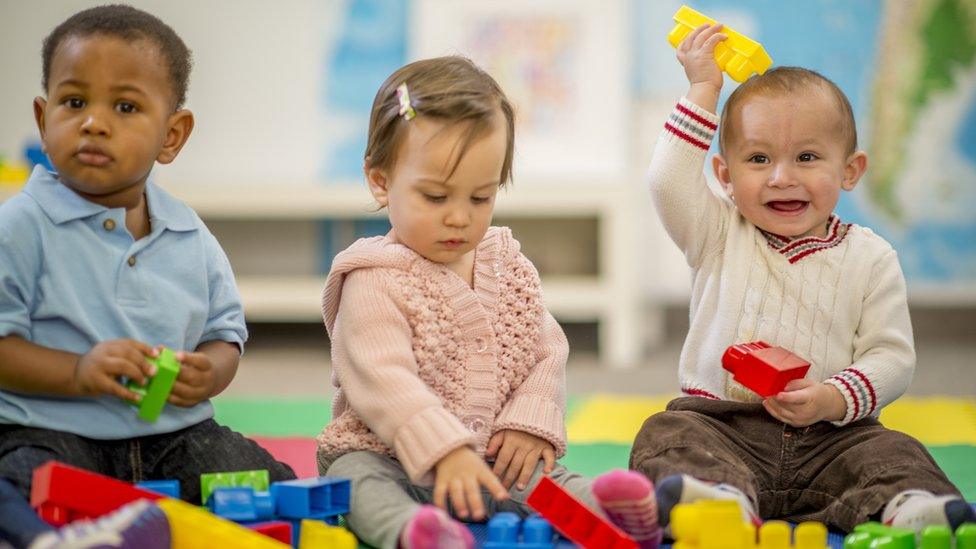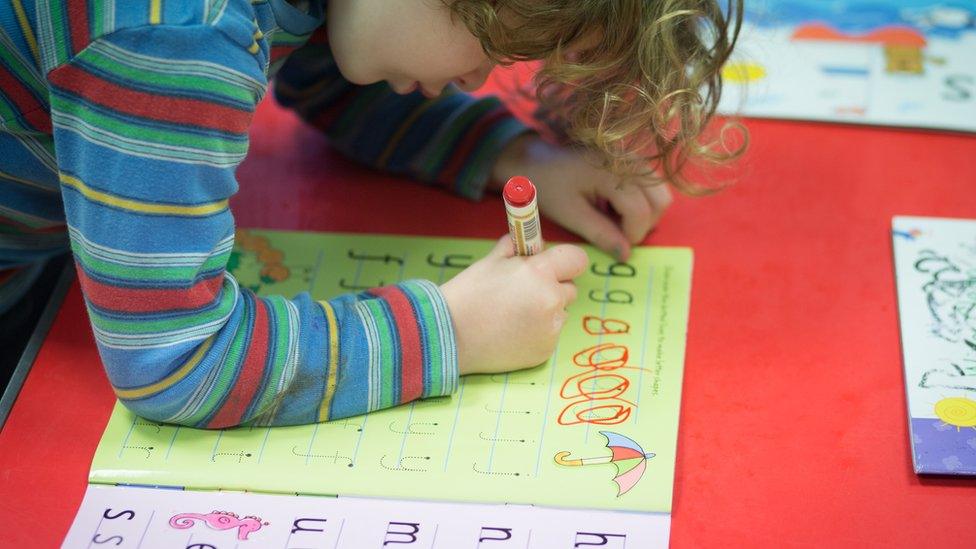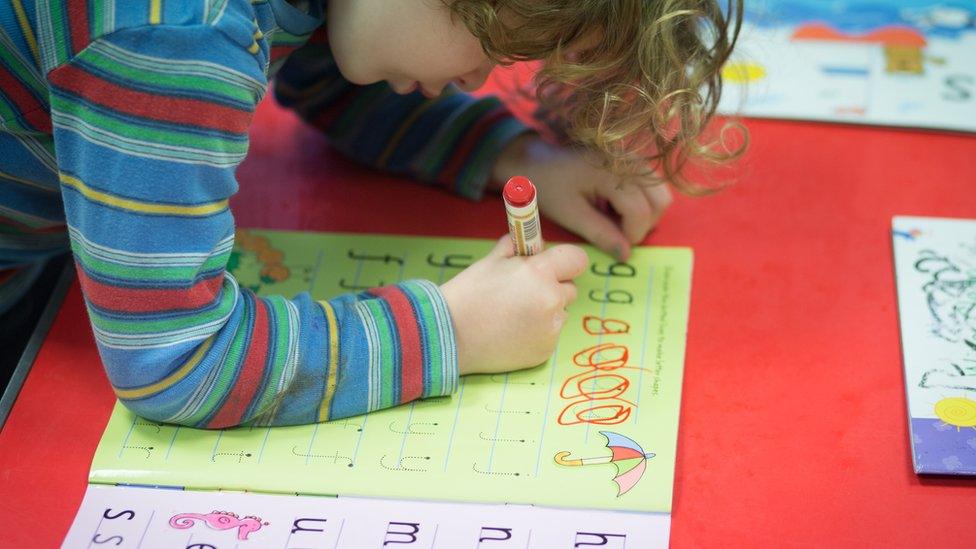Childcare costs rise up to seven times faster than wages
- Published

Childcare costs for young children have risen up to seven times faster than wages since 2008, a study suggests.
TUC research shows that average costs in England for parents with a one-year-old rose 48% between 2008 and 2016, while average wages increased 12%.
Mum-of-three Ellie Thouret said it was "absolutely pointless" to return to work because of the "crippling costs".
The government says it has doubled the free childcare available to working parents of three and four-year-olds.
The trade union body, the TUC, said that, while parents with children aged two and above received financial support from the government, most working parents with one-year-olds did not get any state help.
TUC general secretary Frances O'Grady said: "There is a real gap in childcare support for one-year-olds until government assistance kicks in at age two.
"Parents need subsidised, affordable childcare from as soon as maternity leave finishes to enable them to continue working, and so mums don't continue to have to make that choice between having a family and a career."
One mum Ellie Thouret, who has three children, says it would have been "absolutely pointless" for her to return to work after having twins.
"We looked at the sums and the cost of the childcare for three children under three would have just been crippling."
The figures suggest that two parents working full-time, with a one-year-old in nursery for 21 hours a week were typically spending 11% of their wages on childcare in 2016, up from 8% in 2008.
Ms O'Grady said that the picture for single parents was "even worse".
Single parents working full-time, again with a one-year-old in nursery for 21 hours a week, spent, on average, more than a fifth (21%) of their wages on childcare last year, up from a sixth (17%) in 2008, the study said.

What are you entitled to?
For all children aged three and four parents get 15 hours of free childcare a week
Parents who are in work can get 30 hours free for three-and-four-year-olds
And for disadvantaged two-year-olds, parents get 15 hours of free childcare a week

But childminders say the government's 30 hours' scheme is forcing them to close or reduce numbers.
Heidi Stuart says regulations and Ofsted requirements have increased workloads and mean childminding is "far beyond simply caring for a child".
"We are constantly having to undergo and update training related to safety, development and information, the cost of which is from our own pockets and not subsidised or paid for by parents/government.
"As self-employed people we are simply trying to earn a living and support our families.
"It is an enigma to me why some parents feel that childcare is 'expensive' when we are caring and nurturing their children, the future generation."
'Working doesn't pay'
Robert Goodwill, the Children and Families Minister, said the government had saved parents "thousands a year" and helped them "get back into work" by doubling the free childcare available to working parents of three and four-year-olds to 30 hours a week.
Ellen Broome, chief executive of the Family and Childcare Trust, said the cost of childcare meant "it does not pay to work" for many parents.
She said low-income families claiming universal credit typically take home £1.96 per hour after childcare costs have been paid.
'Astronomical costs'
Helen Bryce, who works full-time, told BBC Radio 5 live that childcare was a "constant juggle".
She said her husband was taking a career break to spend time with their children and they also used a childminder.
When they used a nursery, she says, the costs were "astronomical".
"I know at one stage we had our children, we had three young children, all in nursery part time. Our costs were over £1,500 a month, which was more than I was making."
- Published31 August 2017

- Published31 August 2017
